Ariel Did Not Simply ‘give [her] Voice Up For A Man.’
Ariel did not simply ‘give [her] voice up for a man.’
Since childhood, Ariel has been among my favorite Disney princesses. I connect with her deeply – and whenever someone (like Keira Knightley recently) brings up the old line that she is a ‘bad role model’ for young girls because she ‘gives up her voice for a man,’ my heart breaks.
That reading of Ariel’s character is reductive and inaccurate.
Everyone always mentions that Ariel was interested in the human world before meeting Eric, but not as many people point out how radical that makes her in the context of her own society.
Ariel lives in a society that is xenophobic towards humans, Triton at various points calls them “barbarians,” “savage,” and “incapable of any real feeling.” She lives in a society that constantly tells her that her interest in the human world is wrong and bad, something she struggles with at the start of Part of Your World:

By seeking a fuller understanding of the human world, Ariel actively challenges her father’s xenophobia, thinking for herself instead of accepting her society’s fears and prejudices.
The film goes out of its way to establish Ariel as an outsider within her own society. Think for a moment about the opening lines of Part of Your World:
Look at this stuff. Isn’t it neat? Wouldn’t you think my collection’s complete? Wouldn’t you think I’m the girl The girl who has everything? Look at this trove, Treasures untold How many wonders can one cavern hold? Lookin’ around here you’d think Sure, she’s got everything…
People who criticize Ariel so often mis-characterize her as simply a spoiled teenager. The very statement, “She gave up her voice for a man!” implies she’s a foolish girl who throws her life and agency away in a fit of pique.
Yet, the opening of Part of Your World anticipates that certain members of the audience will have a superficial understanding of Ariel’s pain and directly addresses that. On a superficial level, Ariel does seem like “the girl who has everything.” She is the daughter of the most important merman in Atlantica, she has countless treasures hidden away in her grotto…
But that’s the thing, you see. They’re hidden in her grotto. Ariel may be the daughter of the sea-king, but the sea-king hates and fears humanity. Part of Your World is the most heartbreaking rebuttal to anyone who sees Ariel as a shallow teenager because it shows how alone she truly is. Except for Flounder, she has no one under the sea she can genuinely confide in. (She confides in Sebastian, of course, but he was sent by her father to spy on her and he does betray her trust – by mistake, but he does). Her sisters and the rest of Atlantica presumably do not question the prejudices that cause the human world to be forbidden to the sea folk.
Ariel is an outcast, forced to hide who she is from the people who should love her unconditionally.

The more Part of Your World goes on, the more devastating and resonant Ariel’s collection of artifacts becomes.
These artifacts represent a void in her life and, at the same time, are the only means she has of filling that void.
She longs to have knowledge, but her society imposes ignorance on her. She longs to see the human world herself, to ask questions and finally be answered – but it is all denied her. The imposed ignorance forces her to live vicariously through the artifacts she collects.
She cannot see a couple dancing, so she must content herself with a music box.
She can only experience the shadow of fire on oil and canvas.
Her collection perpetually reminds her that there is a world beyond her reach. At the same time, it is her central way of interacting with that world. Yes, she can go up to to the surface and talk to Scuttle, but her collection is something so much more personal. These are items she saved from the ruins of ships, sometimes at the risk of her own life… so she could study them, learn from them, and lament the unjust rules of her society that prevent her from learning more…
Her courage, her curiosity, her thirst for knowledge are all bound up in these precious possessions.
And yes, they are objects. Yes, she wants more than a collection of objects. But this collection is all she has. And, as far as Ariel knows, it is all she will ever have…
When you’re all but alone in the world and you have only meager scraps to cling to, those scraps mean the world to you.
And, I remind you, Ariel cannot even openly enjoy her collection of scraps, the shadows of a world she cannot touch. She has to hide even them, guard them, keep them secret.
Ariel’s grotto is a place of solace and security where she can be herself without fear of judgment.
There is a reason the destruction of Ariel’s grotto harrowed me more as a child than any other scene in a Disney film. I could hardly watch it. I hid my face. I begged my family to skip scene. I was reduced to a sobbing mess. On a personal level, it harrowed me more than the destruction of Cinderella’s dress.
That reason is because, in watching the scene, I felt the pain of a place of refuge being invaded.
By the time we reach the destruction of the grotto, we are as emotionally invested in Ariel’s collection as she is because we see that the objects are more than objects. They are extensions of herself, encapsulating all her feelings of hope and hopelessness.
Destroying those items is like annihilating a part of her soul.
That is why I hate the “she gave up her voice for a man” line of thought so much. Because it so blatantly disregards the context of the film. Because it paints Ariel as a shallow teenager. Because it places blame for what follows solely on Ariel’s shoulders and absolves Triton of any wrongdoing.
I want to tread carefully here because, like Ariel, Triton is a nuanced and complex character. He has good intentions and cares about his youngest daughter.
Yet, even a well-intentioned individual can be in the wrong. Even an individual who is right about certain things (Ariel is indeed impetuous and reckless at times – though I hope my analysis reminds readers that those are not her sole character traits), can be wrong about other things.
And Triton’s confrontation with Ariel highlights his failings and his faults.
Look at Ariel’s face when she first sees her father in the grotto:

The enhancement of expression in animation allows the audience to clearly see the fear in her face.
Triton has created an environment where his own daughter is afraid of him.
No parent should do that to their child.
Confronting Ariel, Triton says, “I consider myself a reasonable merman. I set certain rules and I expect those rules to be obeyed.”
On one level, Triton is right to expect his children to respect the rules he sets in place.
What I feel Triton misses, however, is that respect is not the same as intimidation.
Since Triton wants Ariel to accept his rules based solely on his authority as her father, he makes it impossible for there to be any communication between himself and his daughter.
This dynamic means that he will not listen to Ariel even when Ariel is in the right and he is not. Children should listen to their parents, but in the same way, parents should listen to their children.
Triton may be in the right to worry about his daughter’s safety, but his fear is still born of bigotry – bigotry that Ariel recognizes and rejects.
Triton, after all, grows angry at his daughter because she wouldn’t let another living being die. He specifically calls her out because she “rescued a human from drowning.” When Ariel counters that allowing someone helpless to miserably drown is cruel, he shuts her down with:

When Ariel points out the illogical nature of her father’s brutal line of thought and says, “You don’t even know him!”, Triton responds:

Even if a viewer is largely sympathetic to Triton, that viewer cannot ignore Triton’s prejudice in this moment.
He generalizes millions of people.
And if the rules he sets down include the tacit understanding, “Let innocents die because, by virtue of their humanity, their lives have no value,” then maybe those rules deserve to be broken. Maybe those rules need to be changed.
Ariel may be a teenager, but she is wiser than her father here.
(Also, can I say that Ariel’s body language here breaks my heart every time I see it? She’s swimming away from her father, recoiling…

…until she’s cowering behind Eric’s statue. She looks like she’s about to cry as her father pours forth more vitriol…

…and after she bursts out with the exclamation, “Daddy, I love him!”, she’s terrified that she’s said it.)
Triton believes that he alone is in the right and destroys the grotto because he feels it is “the only way” to “get through to” his daughter. He believes he must be cruel only to be kind.

Yet, in the end…

…he only succeeds…

…in being cruel.

Triton’s unwillingness to listen to his daughter – his unwillingness to treat her with the same respect he demands of her – only widens the gulf between them.
Ariel does not go to the sea-witch because she has been mooning over a man.
Ariel goes to the sea-witch because she has no voice in her own home. Becoming human, she gains the ability to live life on her own terms. Becoming human, she ironically gains the voice she has been denied for so long.
Ariel goes to the sea-witch because her father sends a message to her – a message that she does not matter, that there is no place for someone like her in Atlantica.
Triton may never have meant to send that message, but send it, he did… and he should be held accountable for that.
Indeed, the film does hold him accountable for that.
After destroying the grotto, Triton realizes he has done a horrible thing.
Look into his eyes after Ariel falls to weeping:

Look at the regret in his eyes. Look at the remorse. He knows he has gone too far. He never meant to hurt his daughter like this.
And when Ariel vanishes from Atlantica, Triton takes responsibility for his actions. What does he say when his daughter cannot be found? Does he say, “What folly has my daughter gotten herself into now?”
No. He says:

Simply saying that Ariel ‘gave up [her] voice for a man’ ignores the painful complexity of the situation in which she finds herself. It ignores the depth of her motivation. It ignores Triton’s culpability. It ignores her best character traits and only highlights her flaws (and yes, she has flaws, for she is a multifaceted, well-written character.)
But Ariel’s rejection of prejudice, her ability to see beauty in a group that nearly everyone around her demonizes, her courage and determination and love, are all venerable traits…

…and Ariel’s courage, determination, and love are what inspire Triton to open his heart and change.
Some people say that The Little Mermaid is more Triton’s story than Ariel’s. I disagree and feel that assessment unfairly dismisses Ariel’s emotional journey. Triton has a compelling arc in the film – but that arc is only set in motion because of Ariel’s agency.
He learns from his daughter’s example.
He grows because of her.
Why don’t we talk more about Ariel, the young woman who always challenged her father’s prejudice? Why don’t we talk more about Ariel, who actively spoke out about the flaws she saw in her society? Why don’t we talk more about Ariel, whose actions helped change that society for the better? Why don’t we talk more about Ariel, who formed a bridge between two worlds and enacted positive change?
Why don’t we talk more about that Ariel?
I know Ariel can be impulsive, but she is sixteen years old, and her impulsiveness only makes her character realistic. She makes mistakes but, like her father, she owns up to those mistakes and learns from them:

There are critics of Ariel’s character who want to make the story of The Little Mermaid black and white. Because Triton recognizes Ariel’s impulsiveness, they ignore Triton’s faults and trivialize Ariel.
Yet, the story the film presents is not so black and white. Ariel and Triton are not so one-dimensional.
They both learn from each other and grow together.

This embrace is so meaningful because, by the end of the film, Triton finally shows Ariel the same respect he asks of her and in so doing, he earns her respect.
Ariel, meanwhile, recognizes her own mistakes and gains a new appreciation for her father.
The Little Mermaid is a beautiful film and Ariel is a brave, inspiring, complex heroine.
More Posts from Tipsorina and Others

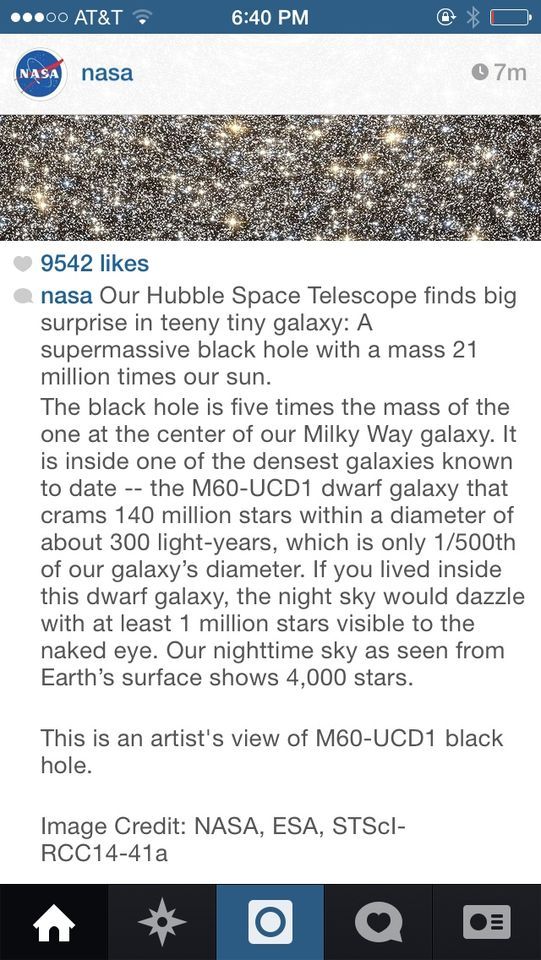
did y’all see this shit
i’m done!!!
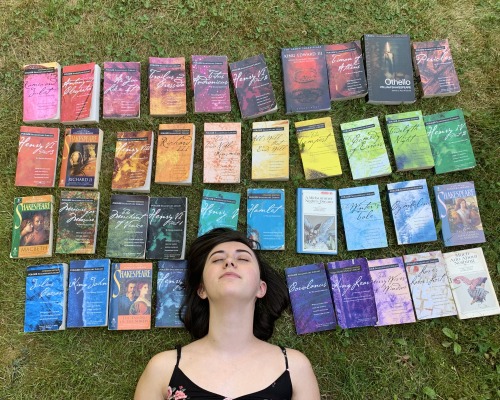
today, a year and a half after reading hamlet and first falling in love with shakespeare, i completed my goal of finishing the complete works before my high school graduation. it’s been an amazing journey and talking to all of you and feeling at home in such a wonderful community has made it ten times better. if you follow this blog it probably goes without saying that shakespeare has changed my life, but damn, i’m really feeling it today. i’m just so incredibly grateful to have read each and every one of these plays (yes, even henry viii….kinda). here’s to starting my english degree in the fall and reading them all again. 💕💕💕
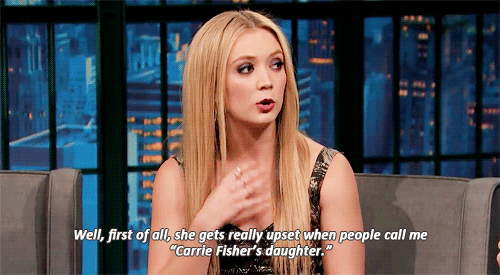
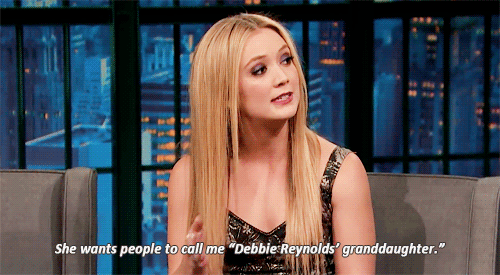
Billie Lourd on how Grandma Debbie Reynolds wants people to identify her
Ξέρεις κανένα καλό βιβλίο για τους προσωκρατικους πέραν αυτά του Νίτσε?
αν εννοείς ανάλυσης γνωρίζω μόνο το “Οι προσωκρατικοί” -Θεόφιλου Βέικου, αλλά δεν το έχω διαβάσει ολόκληρο, βασικά μέχρι τον Ελεατισμό και Πυθαγορισμό, τα λέει πολύ καλά, δεν σε κουράζει δηλαδή και μπαίνεις εύκολα στο νόημα, και ένα ακόμη από τις εκδόσεις ΜΙΕΤ "Οι προσωκρατικοί φιλόσοφοι” που δεν το χω ανοίξει καθόλου
The Song of Achilles, Madeline Miller

Rating: No Good Genre: Fantasy Representation: Gay men, Greek/Mediterranean cast Trigger Warnings: rape, rape culture, explicit sex scenes, child sexualization, exotified ethnicity, character death
I stopped reading The Song of Achilles a third of the way through. I started the novel with high hopes, as The Song of Achilles promised to be an exploration of the romantic relationship between Achilles and Patroclus—taking what The Iliad only implied and putting it to paper.
Here’s what I was hoping for: an honest exploration of the ancient Greek conception of sexuality, taking into account that homoeroticism that we today would call “homosexual” was not considered part of one’s sexual identity, simply what one did (in addition to taking a wife, of course). What would a boy growing up in (mythical) ancient Greece, a land where even Zeus took male lovers, think about his own romantic and sexual desires? Does he desire only men (in The Song of Achilles this is true of both Achilles and Patroclus), and what does that mean for him personally, as compared to what it would mean for us today?
Here’s what I got: The Song of Achilles reads very much like the erotic fantasy of a straight woman about gay men. I was made personally uncomfortable, especially considering how young the characters are in the first 3rd of the book (9-16). The Song of Achilles revisits tired tropes that seem very out of place in the ancient Greek setting–a culture notorious for its fluid sexuality. Thetis (Achilles’ mother) behaves more like a small town republican than a goddess. She’s upset that Achilles and Patroclus kiss and makes it her mission to separate them. This makes absolutely no sense considering that, as a goddess, she should be above the petty who’s-kissing-who of mortals, and makes even less sense when you consider that Zeus himself took male lovers. The bigotry is only included in the text because Miller has no idea how to deal with queer characters outside of the angst of the present day. I was expecting this story to at least acknowledge that ancient Greece is not the same as Victorian England just because both periods happened out of living memory.
Neither Achilles nor Patroclus consider themselves as part of a greater social context. If Patroclus really had exclusive feelings towards men, there would be some internal narrative exploring how he feels about his feelings–how does he see himself fitting into his culture? Instead, the entire narrative focuses on the external–how attractive Achilles is, and the external consequences for their relationship (such as the disapproval of Achilles’ mother). This is what really convinced me that this book was written for straight readers. A coming of age story about queer children, yet they spare no thought for their own identities? No thoughts of the future, or considerations of whether there are others like them? I would have been incredibly interested in a well-researched novel which explores the unique challenges (and enjoyment!) of queerness in an ancient context. That would have been a truly unique novel. The Song of Achilles, however, reads like Miller read one Alex Sanchez novel and thought she was somehow qualified to write this book.
Further, Miller struggles with separating her own voice from the voice of her first person narrator, which makes for some very uncomfortable narration surrounding the bodies of 9-13 year old children. Patroclus, 9 at the time, describes Achilles as “still plump with childhood” and with “hair lit like honey in the sun.” Later, at 13, Achilles is “supple.” This is the language not of a child, but of an adult observing childhood. A child would never say another child their age was “still plump with childhood.” Patroclus’ voice gets lost in Miller’s desire to write in a sophisticated style, which has the horrible repercussion of making her novel voyeuristic.
Related to this is the fact that Miller exotifies the nationalities of her characters. Everyone has “skin the color of freshly pressed olive oil” which is so silly coming from the point of view of Patroclus, who has grown up seeing Mediterranean people all his life–and looking just like them. Frankly, it’s racist. It’s a white woman looking in and impressing her own observations, not the observations of a young Greek boy, on the narrative. Some further racism: Achilles, hyperattractive demi-god that he is, is portrayed as “whiter” than everyone else–and his beauty is almost always described by the color of his “golden” skin. His hair is honey and his eyes are green, in contrast to the dark eyes and the “nut-brown” bodies of the rest of the Greeks.
So, not only is The Song of Achilles a disappointment for queer readers looking for good representation, it’s not that well written, constantly breaking point of view to give us an uncomfortable dose of child sexualization and racism. The premise of this novel had a lot of potential, but Miller couldn’t follow through with an inoffensive execution.
For more info on Madeline Miller, here’s her website
How to feel again
Walk barefoot in the grass, remember the way this feels. Now put your shoes back on, you do not want the thing to touch your toes.
Go outside in the dark, scream at the moon. She is listening, it is okay.
Allow her to comfort you, she means well.
If you hear other people screaming, do not fret, they are just as apathetic as you, let them feel.
If an elderly woman comes and stands near you, thank her. Listen to what she has to say, she knows best.
If you see an animal that does not belong, leave. Go home, and sit in a room in the dark. If you don’t, go home and have a good night’s sleep
Do not fall asleep.
If you hear whispers, it is okay.
Remember rule number 7 and 10. Leave at sunrise. Lock the door behind you. Feel.
More guides
Escaping angelic prison
How to confirm whether or not you are a changeling
If you are a researcher or adventurer and want to share a guide, join our subreddit!
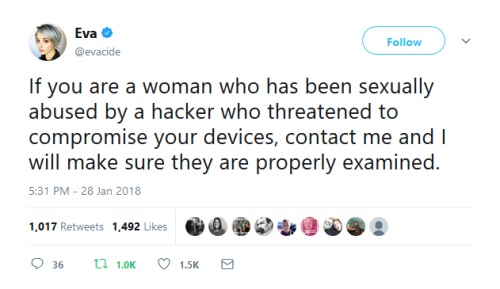
The director of cybersecurity from the Electronic Freedom Foundation is offering to help women who have been threatened with compromise of their devices.
yī rì sān qiū / 一日三秋 (κινέζικα): “μια μέρα, τρία φθινόπωρα”, όταν κάποιος σου λείπει και νομίζεις πως ο χρόνος δε περνάει με τίποτα.


-
 manchandebussy595 liked this · 2 months ago
manchandebussy595 liked this · 2 months ago -
 philosophika liked this · 2 months ago
philosophika liked this · 2 months ago -
 chibifoxai reblogged this · 3 months ago
chibifoxai reblogged this · 3 months ago -
 traumatizedartist liked this · 3 months ago
traumatizedartist liked this · 3 months ago -
 scarletgemstone reblogged this · 3 months ago
scarletgemstone reblogged this · 3 months ago -
 scarletgemstone liked this · 3 months ago
scarletgemstone liked this · 3 months ago -
 amaltheathelast liked this · 3 months ago
amaltheathelast liked this · 3 months ago -
 roxas-von-einzbern reblogged this · 4 months ago
roxas-von-einzbern reblogged this · 4 months ago -
 hosanna20 liked this · 4 months ago
hosanna20 liked this · 4 months ago -
 thej13579 reblogged this · 4 months ago
thej13579 reblogged this · 4 months ago -
 thej13579 liked this · 4 months ago
thej13579 liked this · 4 months ago -
 maracujatangerine liked this · 5 months ago
maracujatangerine liked this · 5 months ago -
 starsunsblog liked this · 5 months ago
starsunsblog liked this · 5 months ago -
 aranzaisabel liked this · 5 months ago
aranzaisabel liked this · 5 months ago -
 penultimatesaint liked this · 5 months ago
penultimatesaint liked this · 5 months ago -
 lovelyladii2011 reblogged this · 6 months ago
lovelyladii2011 reblogged this · 6 months ago -
 loulou10u liked this · 6 months ago
loulou10u liked this · 6 months ago -
 sicut-anima reblogged this · 6 months ago
sicut-anima reblogged this · 6 months ago -
 sicut-anima liked this · 6 months ago
sicut-anima liked this · 6 months ago -
 thefreshprinceofjunes liked this · 7 months ago
thefreshprinceofjunes liked this · 7 months ago -
 anna6bmeg liked this · 8 months ago
anna6bmeg liked this · 8 months ago -
 vendimeyers reblogged this · 8 months ago
vendimeyers reblogged this · 8 months ago -
 nerdsinatree reblogged this · 8 months ago
nerdsinatree reblogged this · 8 months ago -
 chaoticmistake reblogged this · 8 months ago
chaoticmistake reblogged this · 8 months ago -
 chaoticmistake liked this · 8 months ago
chaoticmistake liked this · 8 months ago -
 pokemon4946 reblogged this · 8 months ago
pokemon4946 reblogged this · 8 months ago -
 pokemon4946 liked this · 8 months ago
pokemon4946 liked this · 8 months ago -
 ordinarygirly22 liked this · 9 months ago
ordinarygirly22 liked this · 9 months ago -
 threadsunlightthroughmyfingers reblogged this · 9 months ago
threadsunlightthroughmyfingers reblogged this · 9 months ago -
 multi-fandom-girl-451 liked this · 9 months ago
multi-fandom-girl-451 liked this · 9 months ago -
 cherryflowers15 liked this · 9 months ago
cherryflowers15 liked this · 9 months ago -
 janeaerie liked this · 9 months ago
janeaerie liked this · 9 months ago -
 astrobleu liked this · 10 months ago
astrobleu liked this · 10 months ago -
 unstuckincanon liked this · 11 months ago
unstuckincanon liked this · 11 months ago -
 strawberryicecreamin reblogged this · 11 months ago
strawberryicecreamin reblogged this · 11 months ago -
 kazakhstanluvva reblogged this · 11 months ago
kazakhstanluvva reblogged this · 11 months ago -
 kazakhstanluvva liked this · 11 months ago
kazakhstanluvva liked this · 11 months ago -
 christianalexanderreyes3 liked this · 1 year ago
christianalexanderreyes3 liked this · 1 year ago -
 mentacose-archive liked this · 1 year ago
mentacose-archive liked this · 1 year ago -
 nullnomore liked this · 1 year ago
nullnomore liked this · 1 year ago -
 textsfromgravityfallsblog liked this · 1 year ago
textsfromgravityfallsblog liked this · 1 year ago -
 realityisavariable reblogged this · 1 year ago
realityisavariable reblogged this · 1 year ago -
 swirlspill-study reblogged this · 1 year ago
swirlspill-study reblogged this · 1 year ago -
 invalidtumbls liked this · 1 year ago
invalidtumbls liked this · 1 year ago -
 worlds-best-sippycup reblogged this · 1 year ago
worlds-best-sippycup reblogged this · 1 year ago -
 bluebabysparrow liked this · 1 year ago
bluebabysparrow liked this · 1 year ago
